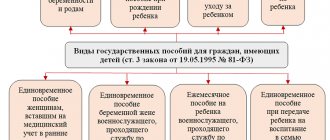Pros and cons of a will for an apartment
Drawing up an administrative document is a citizen’s right, not an obligation. In the absence of a will, the property will be divided among the heirs based on the legal order. If the owner wishes to independently determine the list of heirs and establish their share of the property, then he must draw up a will.
| pros | Minuses |
| Possibility to change a will at any time | It is not possible to transfer the entire apartment under a will if there are citizens who can claim an obligatory share |
| Full right to an apartment and the ability to dispose of it at your own discretion until death (sale, rental) | The heirs will be able to dispose of the apartment only after the death of the testator, in contrast to the gift agreement. |
| Possibility to revoke a will | Heirs can challenge the will in court. In this case, the inheritance will be divided in the order of legal priority (it is easier to challenge a will than a gift agreement). |
To summarize: Among the advantages of a will is the possibility of transferring property to close relatives or strangers, the possibility of drawing up an administrative document for property that has not yet been purchased. The main disadvantage is the risk of appealing the distribution document in the future.
You can draw up an administrative document at any time. The main thing is that the desire is voluntary and not imposed by other participants. If the fact of coercion or abuse of trust is confirmed, the will can be annulled in court.
Who can act as a testator?
In accordance with the Civil Code of the Russian Federation, the testator can be a citizen of Russia, a national of another state, a stateless person who meets the following requirements:
- full legal capacity (attaining 18 years of age, obtaining legal capacity through emancipation);
- the absence of a psychological disorder that prevents you from fully realizing your actions;
- absence of temporary incapacity, which may arise due to abuse of alcohol, drugs or psychotropic drugs.
Persons between the ages of 14 and 16 can make a will, but only with the written permission of their parents. It is mandatory to involve a representative of the guardianship and trusteeship authorities in the procedure, who will confirm that the interests and rights of the child are respected.
Who can be the heir?
Heirs under a will can be all citizens, foreigners, and stateless persons, regardless of their place of residence. The recipient of property can be incapacitated citizens with mental disorders, minor children, whose interests are represented by legal representatives and appointed guardians.
A will can transfer property to individuals, legal entities and charities.
Additionally, the testator may indicate in the contents of the distribution document his will to exclude certain persons from the list of heirs. If after the death of the testator it is established that there are grounds for recognizing any of the heirs as unworthy, then they are deprived of the right to property regardless of the will of the deceased person.
Making a will: what you need to know
Many people, when they hear the word “will,” immediately think of old people, which is fundamentally wrong. A will can be made at any age. Unfortunately, no one is safe from accidents. Therefore, sooner or later the question arises: how to dispose of your property in the event of death? After all, everything that was acquired through back-breaking labor will in any case be distributed among the heirs. But with a will, you decide who gets what property.
What is a will
A will is the disposition of property in the event of death <1>. The main purpose of a will is to determine the procedure for transferring all or part of the inherited property to certain persons. Those. When making a will, a person specifically states what and to whom he is going to leave after his death - this is the main difference between a will and inheritance by law.
Example A grandmother has a son and a grandson. At the same time, she owns an apartment and a dacha. If she does not write a will, then in the event of her death all property will pass to her son <2>. And in the will, the grandmother can, for example, indicate that she leaves the apartment to her grandson and the dacha to her son.
The will must be:
- personal. You cannot make a will through a representative or make one will for two people <3>;
- free. The principle of freedom of will is multifaceted. So, you can dispose of your property as you wish (and not only those that you already own, but also those that you can acquire in the future). You can disinherit without explanation. You can change and cancel your will <4>.
Note! You are not obligated to anyone, including a notary, to communicate and/or explain your decisions in the will. In this case, the notary is obliged to keep the will secret <5>;
- competent. Only a fully capable citizen can make a will. That is, one who is 18 years old (or 15 years old in the case of marriage, or 16 years old in the case of emancipation) and who is aware of his actions <6>.
Note! If potential recipients of the inheritance prove in court that the person was mentally ill at the time of drawing up the will, the document will lose legal force <7>. Therefore, before going to a notary, we advise you to undergo a psychiatric examination.
Regardless of the terms of the will, a portion of the inheritance is received by the obligatory heirs
Minor children, disabled parents, spouses and children have the right to the so-called obligatory share of the inheritance. It is 50% or more of the share of the inheritance that would be due to each of them if inherited by law <8>.
Note Disabled persons include age pensioners, disabled people of groups I, II and III <9>. Minor children are children under 18 years of age <10>.
To determine the size of the mandatory share, you need to calculate the legal share:
The cost of inherited property also includes household items <11>.
Example U Gripa V.P. I have a retired daughter and a niece. He owns an apartment and a dacha. Grip V.P. wants to write a will and indicate in it that he is leaving the apartment to his niece and the dacha to his daughter. The cost of an apartment with household items is 100,000 BYN. RUB, and dachas - 40,000 BYN. rub. That is, the cost of the inherited property is 140,000 BYN. rub. In the absence of a will, the retired daughter is the sole heir. This means that she would have received both an apartment and a dacha. The legal share is 140,000 BYN. rub. (140,000 BYN / 1 heir). In this regard, the obligatory share in this case is 70,000 BYN. rub. (140,000 BYN / 2). With such a will, the niece will have to pay Grip’s daughter V.P. 30000 Bel. rub. (70,000 BYN rubles - 40,000 BYN rubles (cost of the dacha)).
Only the court can reduce the size of the obligatory share <12>.
A will can be open or closed
The testator can write an open will himself or dictate it to a notary in the presence of a witness. The notary can familiarize yourself with the contents of the will and check that it complies with the law. After certification, the notary gives one copy of such a will to the citizen, and leaves the second copy in his archive <13>.
Note: An open will, at the request of the testator, can be signed by another citizen in the presence of a notary. In this case, the will will indicate the reason why the testator could not sign the will with his own hand. This may be due to physical disability, illness or illiteracy <14>.
The testator hands over the closed will to the notary in a sealed envelope in the presence of two witnesses who put their signatures on the envelope.
Note! The testator writes and signs the closed meeting in his own hand. If this rule is not observed, the will is invalid <15>.
The contents of a closed will remain a secret to the notary and witnesses. This is its main difference from an open will.
What to include in a will
The data included in the will can be presented in free form. But the law has two main requirements for the contents of a will:
1. The document should be filled out with special care, paying attention to the fact that all points of the document are clear, understandable and interpreted unambiguously <16>.
Note! If any data in the will has an ambiguous meaning, then its meaning may be disputed by the heirs. In this case, when making decisions, the court will proceed from the literal meaning of the words and expressions contained in the will <17>.
2. When bequeathed property is distributed among several persons, the will must clearly define to whom what is bequeathed and/or to what extent. You can do this in one of the following ways <18>:
- indicate specific things that pass to each heir;
— indicate the shares due to the heirs.
Note: The testator must not present documents confirming his rights to the bequeathed property when certifying the will <19>.
If the will is written by the testator, then it must contain confirmation that the testator wrote it personally and that he is familiar with the content of the Civil Code regarding the mandatory share <20>.
Notaries usually offer their own forms of wills. They may include the place and date of preparation, the name of the testator, the address of his place of residence, etc.
Example of a will:
| WILL City of Gomel, Republic of Belarus. Twenty-eighth of August two thousand and seventeen. I, Viktor Pavlovich Grip, living at the address: Gomel city, Zhukova street, building 40, apartment 34, make the following order with this will: 1) I bequeath the apartment owned by me, located at the address Gomel, Zhukova Street, building forty (40), apartment thirty-four (34), to Grip’s niece Elizaveta Pavlovna and Grip’s daughter Galina Viktorovna in the following shares: 70 percent – Grip Elizaveta Pavlovna, 30 percent – Grip Galina Viktorovna. 2) I bequeath the dacha that belongs to me, located at the address Gomel region, Sunichka Gardening Partnership, plot number two hundred and forty-five (245), to my daughter Galina Viktorovna Grip. Contents of articles, clause 5, art. 1041, paragraph 3 of Art. 1044, art. 1064 of the Civil Code of the Republic of Belarus was explained to me. This will is written and signed by me with my own hand in two copies. Testator ___(signature)________ V.P.Grip |
Conditions that should not be included in a will
In a will you cannot <21>:
- impose on the persons appointed heirs in the will the obligation, in turn, to dispose of the property bequeathed to them in a certain way in the event of their death;
- include in the will conditions for his behavior in order to receive the inheritance that are unlawful or impossible for the heir to fulfill due to objective reasons.
Where can I certify a will?
As a general rule, a will must be certified by a notary <22>. To have a will certified by a notary, you can contact any notary office (notary office) in Belarus, regardless of your place of residence.
Reference information for the Notary can be found on the website of the Belarusian Chamber of Notaries in the “Find a Notary” section.
In an area where there is no notary office (notary office), a citizen’s will can be certified by an authorized official of the local executive and administrative body. Outside Belarus, a will can be certified at diplomatic missions or consular offices of Belarus.
However, there are situations in life when a notary is physically unable to witness a person’s last will. In such cases, the “most important boss” can certify the will in front of witnesses. For example, the chief physician of a hospital can certify the will of a citizen being treated in this hospital, the commander of a military unit can certify the will of a serviceman, etc. But at the first opportunity, such a will must be transferred and certified by a notary in the notary office at the place of permanent residence of the testator <23>.
Note! Only notaries have the right to certify closed wills <24>.
Cost of probate
For notarization of a will and other actions of a notary, the following fee is charged <25>:
| Notarial action | Rate |
| Certification of the will | 0.5 BV - for pensioners and disabled people of groups I and II 1 BV - for other persons |
| Drawing up and preparing draft wills | 0.2 BV |
| Consultations on drawing up a will | 0.5 BV |
| Departure of a notary to the location of the testator (excluding transportation costs) | 0.5 BV |
The specified fee must be paid before contacting the notary <26>.
Reference information Payment can be made through the “Settlement” system (ERIP). Detailed instructions can be found on the website of the Belarusian Notary Chamber.
Who is present at the certification of the will?
In addition to the testator, in some cases, witnesses <27> must be present at the certification of the will:
- one - if you dictate the will to a notary;
- two - if you are certifying a closed will.
In addition, if the testator cannot sign the will himself, then the certificate must be taken by a citizen who will sign the will for him <28>.
In this case, the witness and the person who will sign the will instead of the testator cannot be <29>:
1) a notary or other person certifying the will;
2) the person in whose favor a will was drawn up or a testamentary refusal was made, the spouse of such a person, his children, parents, grandchildren and great-grandchildren;
3) heirs by will or law;
4) citizens who do not have full legal capacity;
5) illiterate;
6) persons with a criminal record for giving false testimony;
7) citizens with such physical disabilities that do not allow them to fully understand the essence of what is happening;
 persons who do not sufficiently speak the language, with the exception of cases where a closed will is accepted by a notary.
persons who do not sufficiently speak the language, with the exception of cases where a closed will is accepted by a notary.
A citizen who signs a will instead of the testator cannot simultaneously be a witness. Also, a witness cannot sign a will for the testator <30>.
What documents to bring to the certification of the will?
Depending on what kind of will you make (open or closed) and whether other persons will be present when the will is certified, the list of documents may be as follows <31>:
| Type of will | List of documents |
| Open, written by the testator | 1. Passport (a document that replaces it). 2. Two copies of a will written in your own hand. 3. Payment receipt |
| Open, recorded by a notary from the words of the testator | 1. Passport (document replacing it) of the testator. 2. Passport (document replacing it) of the witness. 3. When signing a will by another citizen - a passport (a document that replaces it) of this citizen. 4. Payment receipt |
| Closed | 1. Passport (document replacing it) of the testator. 2. Passports (documents replacing them) of two witnesses. 3. A personally written and signed will, sealed in an envelope. 4. Payment receipt |
To save time, before going to the notary, you can make an appointment with him. This can be done, for example, on the website of the regional notary chamber or in person. You can also invite a notary to your home.
How to write a will for an apartment?
When drawing up an administrative document, there is a possibility of its subsequent cancellation after the death of the testator. The risk is associated with the fact that the person himself will no longer be able to protect his property interests. To avoid such situations, it is necessary to follow the rules approved by civil law. It would be a good idea to involve a lawyer in the procedure, who will help you avoid problems and tell you how to correctly draw up administrative documents.
Requirements for form and design
A will can only be written, typed or handwritten on paper. The Civil Code defines the following registration rules:
- citizens draw up a document only in person; the involvement of representatives is not allowed;
- a will can be drawn up by only one person (the exception is a marital will, the possibility of which was added in 2021);
- when approving an administrative document, the presence of 2 witnesses is required, who must be disinterested persons and fully capable;
- mandatory certification of documents by a notary;
- the will must contain the date of execution and the signature of the testator.
The form of the future will depends on the type of administrative documents:
- An open will is the most common type of administrative document. A person draws up a will independently or with the help of a notary and has it approved by a notary. The notary gets acquainted with the content in advance and can eliminate all legal and other errors.
- A closed will is a type of document whose contents are not revealed even to a notary. The approval takes place in a closed envelope in the presence of at least two witnesses.
- Wills equivalent to notarial wills. This category includes administrative documents drawn up in cases where it is impossible to attract a notary. The document is approved by an official who has the authority to sign the will. These are the chief doctors of medical institutions, leaders of scientific expeditions, leaders of military formations, and captains of sea vessels.
- Distribution document issued in emergency circumstances. This concerns the occurrence of a danger to a person’s life, which forces him to draw up a will. After the end of the dangerous circumstances, the will must be approved by a notary.
Contents of the will
Regardless of the type of will, the document must contain the following sections of information:
- date of registration;
- the city where the will is made;
- Full name of the testator;
- person’s passport details;
- registration address;
- the address of the apartment that a person wants to inherit;
- signature and date of preparation.
By will, a person has the right to transfer real estate to one or more heirs. If several candidates are involved, the testator is obliged not only to indicate their names, but also to indicate who will receive what share of the property.
Sample will for an apartment
What documents are needed to register a will with a notary?
How to appoint an executor of a will?
Special cases
The legislator provides for a number of moments in which a will can be certified by a person who is not a notary. These include:
- Commanders of military units;
- Captain of the ship;
- Chief physician of a medical institution;
- Head of a correctional institution;
- Head of the expedition.
As a general rule, to certify a will by a notary, only the presence of the testator is sufficient, but the law establishes special cases that require the involvement of witnesses. Among them:
- The testamentary act is closed;
- In form it is equivalent to notarized documents;
- Compiled under emergency circumstances.
Despite the fact that a will is a document that takes precedence over the order of inheritance under the law, legal regulations establish the rule of compulsory share.
A compulsory share in an inheritance is an unconditional right to receive a share from the inheritance mass, even in the absence of a person among the heirs whom the testator named as such.
Features of the application of the mandatory share:
- Cancellation of the obligatory share by the testator is void;
- The size of the mandatory share is determined by law and cannot be reduced;
- The right to an obligatory share is non-transferable and is assigned to a specific person by virtue of legal status and law.
The procedure for certifying a will for an apartment
The testator can independently draw up a will at any time, but it will receive legal force only after approval. Additionally, the notary registers the will in the unified register, which allows, after the death of the testator, to check information about the availability of the distribution document.
Which notary should I contact?
To approve the will, the testator can choose any notary, regardless of the place of registration and residence. This is due to the fact that after registering a will, all lawyers working in the Russian Federation have access to the register.
In accordance with the requirements of Article 1115 of the Civil Code, the opening of an inheritance is carried out only at the place of last registration of the testator, therefore it will be more convenient for the heirs if the will is drawn up at the place of residence.
The notary certifying the will is obliged to completely preserve the secrecy of the will. Not only is it prohibited to disclose the contents of an administrative document, but also to disclose information about the execution of a will.
List of documents
To draw up an administrative document, the testator must have with him:
- passport;
- document confirming registration;
- receipt for payment of state duty.
To avoid disputes in the future and to prevent the revocation of the will, a person has the right to provide an additional certificate from a narcologist and a psychiatrist confirming the absence of a psychological disorder. So the will is not revoked due to incapacity.
When making a will, regardless of the indication of real estate, a person should not bring documents for this property. Property rights to real estate will be verified by a notary already at the stage of opening inheritance proceedings, since after the execution of a will, until his death, a person has the right to dispose of real estate up to its alienation.
Registration cost
In 2021, when registering a will, the testator will have to pay a state fee, technical and legal services of a notary. In 2021, the state duty is 100 rubles. This amount is approved by the Tax Code and is the same for all participants in legal relations. A state fee is charged for the notary's signature and entering information about the will into the unified register.
Legal services include assistance from a notary in drawing up a distribution document. The cost of a will will depend on whether a person applies to a private or public notary office.
On average you will have to spend 5,000 rubles.
Technical services include making copies, preparing notarial requests, checking draft versions of wills.
2000-3000 rubles will be added to existing costs.
Documentation
To draw up a will, the will-maker will need the following documents:
- Passport of the testator;
- Passport details of heirs, witnesses;
- Title documents for property included in the will;
- A certificate confirming legal capacity (requested privately if the notary cannot objectively establish legal capacity).
In cases where the subject of the will is property acquired in the future and there are no title documents for it, a clause may be adopted on their mandatory inclusion before the death of the testator.
Changing a will
Each testator, after approval and registration of the will, has the right to:
- cancel the administrative document;
- make changes to the contents of the will;
- draw up a new administrative document.
When a new will is executed, the notary approves it and registers it in the registry. All documents drawn up before this are canceled, but continue to be stored in the register and in the notary office.
If, after the opening of the inheritance, the last copy of the will is canceled in court, the previous copy is taken into account. If there are no grounds for canceling the previous copy, then the division of property occurs according to it.
What provisions can be included in a will?
A citizen has the right not only to divide property between heirs, but also to oblige them to perform certain actions. Refusal to properly carry out the will of the deceased entails a ban on entering into inheritance.
Options for additional conditions:
- Testamentary refusal . This is a requirement for heirs to take a socially significant action or to provide one of the relatives with the right to use residential premises for the period of his life.
- Testamentary assignment . This is a requirement to fulfill the last will of the deceased. For example, take his pets.
- Appointment of executor of a will . If necessary, the testator can appoint an executor, who will have to oversee the implementation of the last will of the deceased citizen (Article 1134 of the Civil Code of the Russian Federation).
Challenging a will for an apartment
Challenging a will is a common procedure that begins at the initiative of heirs excluded from the list of property recipients. Contesting a will occurs only in court in a federal court of general jurisdiction. You can prepare a statement of claim and send it to court only under the following circumstances:
- violation of the form of the will;
- violation of the contents of the document;
- violation of the procedure for drawing up an administrative document;
- making a will by an incapacitated person;
- execution of a document under duress;
- presence of other violations of legal procedure or rights of the testator.
To challenge the person concerned, you need to do the following:
- opening of inheritance due to the death of the testator;
- familiarization with the contents of the will;
- collection of evidence indicating sufficient grounds for annulment of the administrative document;
- preparing a statement of claim;
- sending a petition to the court;
- suspension of the inheritance period by order of the court;
- resolution of the dispute on the merits;
- obtaining a court decision;
- transfer of the decision to the notary, who continues further notarial proceedings.
Who can challenge a will?
Not all participants in legal relations can initiate the revocation of a will. The following may prepare and submit a petition to the court:
- persons specified in the will who are dissatisfied with the procedure for dividing property;
- relatives excluded from the list of candidates;
- close relatives who claim to receive property in the first place if there were no will.
If the testator’s circle included persons claiming an obligatory share of the inheritance, but no mention of them was included in the contents of the order, then this is not a basis for revoking the will. In this case, the notary allocates the obligatory share and then divides the property in accordance with the last will of the person.
Is a will valid, not certified by a notary, written by hand?
In unforeseen cases, a handwritten document is drawn up indicating the final wishes of the copyright holder regarding the distribution of personal assets. When receiving such a document, relatives do not understand whether a will that is not certified by a notary has legal force.
If the registration rules are followed, all the details are spelled out, the urgency of the conditions is proven, the contents of the paper are carried out. The act is also considered in the presence of direct or indirect danger - emergency cases, serious illness, fatal injury, etc.
The question often arises whether a will that has not been certified by a notary is valid if there is no such specialist in the area where the testator lives. This document is taken into account when dividing the property of the deceased, but only for 1 month.
Often, uncertified orders are challenged in court and the heirs have to prove that the testator wrote the document of his own free will. Writing a will by hand does not require much time or special skill. But it is important to understand that the legal validity of such a document is in doubt and the successors may have problems receiving an inheritance under a will.
Is it possible to bequeath a share in a privatized apartment?
The right to draw up a will for a share in an apartment is vested exclusively in the owner of the residential premises. Privatization is the basis for the emergence of ownership of a property.
The rights to part of the apartment arise only from the person who participated in the privatization. In addition, the citizen must subsequently register the object with Rosreestr.
Thus, it is possible to bequeath a share in a privatized apartment. However, the law establishes a number of restrictions.
Expert opinion
Stanislav Evseev
Lawyer. Experience 12 years. Specialization: civil, family, inheritance law.
Conditions for bequeathing a share in a privatized apartment:
- Only a person participating in privatization can act as a testator.
- The bequeathed portion cannot exceed the share that is owned by the testator.
- The share must be registered in the manner prescribed by law (registration in Rosreestr).
A family member of the tenant of the residential premises who did not participate in the privatization cannot bequeath a share in a privatized apartment.
Reasons why a citizen might not participate in privatization:
- refusal to participate in the ransom (an adult child and other capable citizens who have formalized an official refusal);
- use of the right to privatization earlier (every citizen is given the right to purchase once in his life );
- privatization was formalized before the citizen became a member of the family (marriage after purchasing the apartment).
Important! Thanks to a will, a portion will become the property of the recipient chosen by the owner. Otherwise, the property will pass to the heirs by law (relatives or dependents of the deceased).
The owner can bequeath:
- share in shared ownership (the value is indicated in the title documents);
- share in joint ownership (allocated when the property is divided into all owners in equal shares).









